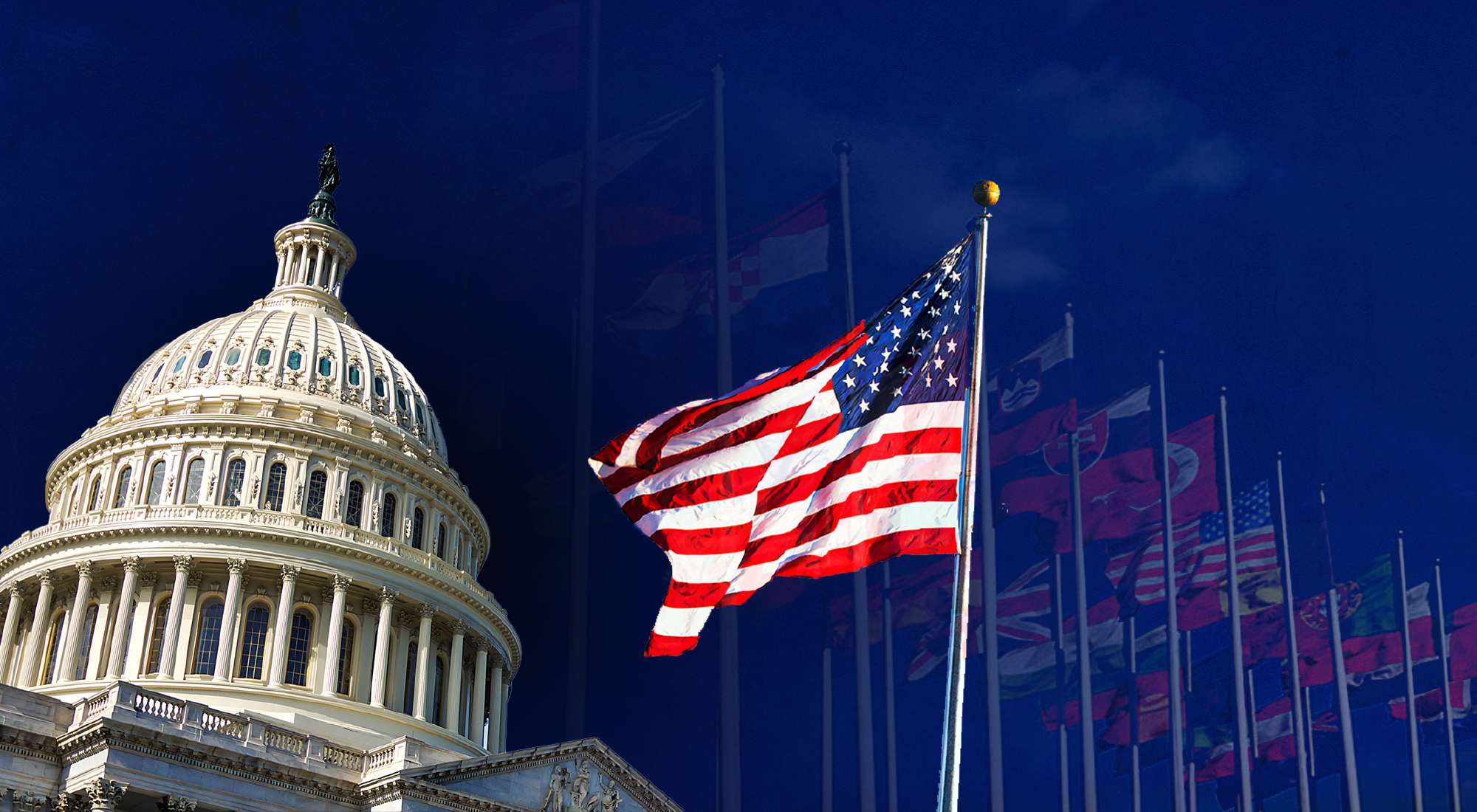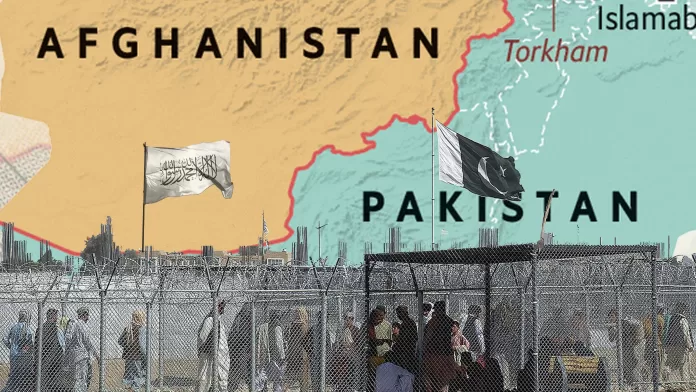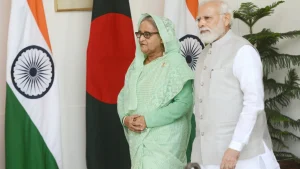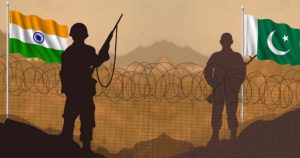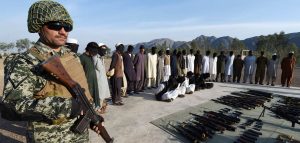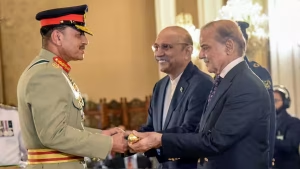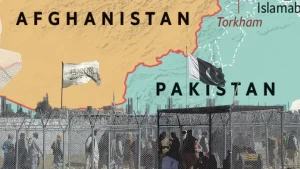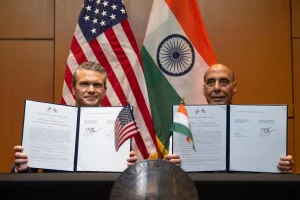Volume 2, Issue 9 — September 2025
Overview
In September, as many as 140 terrorist attacks, including three suicide bombings, caused 437 fatalities. There was no major variation in the frequency of terrorist attacks as compared to August, when 143 violent incidents were witnessed. However, the fatalities in September almost doubled compared to 281 reported casualties in August. The sudden jump in terrorist attacks is attributed to the faltering diplomatic process between Afghanistan and Pakistan, as well as growing operational capabilities of Pakistani terrorist networks. The unprecedented surge in terrorist attacks compelled Pakistani Prime Minister Shahbaz Sharif to issue a dire warning to the Taliban regime to choose between Pakistan and Tehreek-e-Taliban Pakistan (TTP).
In response to the growing terrorist attacks in Khyber Pakhtunkhwa (KP) and Balochistan, Pakistani security forces expedited their intelligence-based operations and carried out several raids against terrorist infrastructure. Despite eliminating key terrorist leaders in September and inflicting heavy losses on TTP and the Hafiz Gul Bahadur Group (HBGB), the presence of their top leaders and key commanders in Afghanistan have sustained their violent campaigns. At the same time, the growing state-society gap in KP and Balochistan has also enabled terrorist groups to exploit these fault lines and fuel their recruitment drives. Pakistan needs to revisit its current internal security architecture and carry out reforms in civilian law enforcement agencies, along with equipping them with modern training, weapons, and sufficient recourses to effectively tackle the evolving threat of terrorism. At the same time, improvement in intelligence sharing, communication, and coordination between different security institutions is equally critical to effectively battle terrorism.
Trends
Suicide Bombings
On September 2, five suicide attackers belonging to the Ittehad-ul-Mujahideen Pakistan (IMP), a militant alliance of the HGBG, Lashkar-e-Islam (LeI) and Harkat Inqilab-e-Islami Pakistan (HIIP), stormed the paramilitary Federal Constabulary’ (FC) headquarters in Bannu district. The attackers breached the perimeter security by ramming an explosive-laden car in the outer wall and engaging in a gunfire with FC. The perimeter wall collapsed because of the blast, and nearby shops were also damaged. It was the 10th suicide attack in Bannu since August 2023, including nine by HGBG and one by TTP. Six FC soldiers lost their lives in the attack, while five attackers were also eliminated in retaliatory fire. In recent months, various areas in KP, especially Bannu, Peshawar, Karak, Lakki Marwat and Bajaur districts, have seen a series of high-profile attacks targeting police and other law enforcement agencies.
Another suicide attack in Quetta targeted a gathering commemorating the death anniversary of Baloch National Party’s (BNP) founder Sardar Attaullah Mengal. As many as 13 people lost their lives, and 35 others were injured in the blast. Several key political leaders, including BNP chief Sardar Akhtar Mengal and the Pakhtunkhwa Milli Awami Party (PkMAP) head Mehmood Khan Achakzai, were also present escaped unhurt. This was the second suicide attack on Akhtar Mengal in six months. The attacks against Baloch nationalists have intensified after the Islamic State of Khorasan Province (ISKP) declared war against them, claiming that Baloch separatists, in violation of an agreement of non-aggression, killed its fighters in Mastung district in March 2025. ISKP claimed responsibility for the attack.
On September 18, a suicide bomber rammed an explosive-laden vehicle into a convoy of paramilitary FC near the border crossing with Iran, leaving five people, including three soldiers, dead. The Baloch Liberation Army (BLA)-Zeb group claimed responsibility for the attack.
ISKP-Taliban Rivalry
On September 6, an Improvised Explosive Device (IED) attack at a cricket ground in Bajaur district killed a close associate of the Taliban’s former governor for Kunar, Muhammad Usman Turabi. Earlier, Turabi had survived an attack by ISKP in Bajaur. Bajaur has been an active battleground in the ongoing ideological war between ISKP and the Taliban. Several ISKP fighters relocated to Bajaur from Afghanistan’s Kunar province following a ruthless crackdown from the Taliban. Since 2023, ISKP has killed several workers of Jamiat Ulema-e-Islam Fazl (JUI-F), which had worked closely with the Taliban in Kunar to dislodge ISKP. The terror group now maintains a strong footprint in Bajaur and is gradually expanding its influence from Bajaur to other parts of KP. The JUI-F chief Maulana Fazlur Rehman, who is considered a political ally of the Taliban, has survived numerous suicide attacks by ISKP in Balochistan.
TTP’s Propaganda Video of Paramilitary Training
On September 27, TTP’s propaganda wing, Umar Media, released a training video of its militants dressed in military gear. The video shows militants firing weapons and performing different military drills. Most of the weapons showcased in the video are of the United States (US) origin, left behind in Afghanistan following the American withdrawal in August 2021. The possession of these weapons has significantly increased lethality and accuracy of TTP attacks in Pakistan. Such propaganda videos are aimed at recruiting by showcasing the group’s strength and combat capabilities.
TTP and BLA’s Major Ambushes Against Pakistani Security Forces
On September 8, BLA claimed responsibility for two separate attacks targeting Pakistani security personnel in Zamran and Kalat districts. The attack in Zamran targeted a military vehicle, while the one in Kalat hit a security check post. BLA maintained that these attacks were part of its ongoing offensive against the Pakistani security institutions.
Similarly, on September 28, BLA claimed to have killed at least 15 Pakistani security personnel during clashes in the remote Zehri town near Khuzdar district. BLA ambushed a convoy of four military vehicles resulting in fierce clashes. Two vehicles were destroyed during the gun battle. Tensions have persisted in Zehri since August, as BLA has challenged the state’s control on and off. The ambush came on the heels of the Baloch Raji Ajoi Sangar’s (BRAS) attack on a 13-vehicle military convoy in August. These attacks mark a significant escalation of tensions in Balochistan as Baloch separatists are repeatedly carrying out high profile attacks and inflicting heavy casualties against military and paramilitary troops in Balochistan. The Pakistani military launched airstrikes around Zehri to restore its control and push back Baloch separatists.
Likewise, on September 29, around nine Pakistani security personnel lost their lives, and seven others sustained injuries in an IED explosion in Upper South Waziristan.
Response
In September, a seminary, Jamia Arabia Ahsan-ul-Uloom, in Karachi disassociated itself from Mufti Nur Wali Mehsud by revoking the certificate of his graduation issued to him in 1999 after completing ‘Daura-e-Hadees.’ In a statement, the seminary maintained that it follows Pakistani laws as an educational institution. It further added that, in view of Nur Wali’s activities against the state, it has distanced itself from him and revoked his certificate. Likewise, another madrassa, Jamia Darul Uloom Yaseen-ul-Quran, also disowned any association with him and maintained that he has no link with the institution whatsoever, and any certificates, if issued, stand revoked. These steps are aimed at undermining religious credential of militant leaders who have been justifying their violence under the garb of transforming Pakistan into a Taliban Emirate-like theocratic state. Pakistan’s national narrative articulated in Paigham-e-Pakistan, has categorically forbidden any armed struggle in the country using religion as its basis. Furthermore, the Pakistani state uses the term Fitna Al-Khawarij to refer to religious militant groups.
On September 2, KP police eliminated six TTP terrorists in Bannu district, which has witnessed a high number of terrorist attacks from both TTP and HGBG. The police in KP has borne the brunt of terrorist attacks in the province since the Taliban’s return to power in Afghanistan in August 2021. As Pakistan has increased pressure on the Taliban to dismantle TTP’s sanctuaries in Afghanistan, the police in KP have been undergoing various transformations to respond to the evolving security threats in the province, including new training manuals, improved weaponry, and better coordination with other law enforcement agencies.
On September 7, Pakistani security forces killed seven TTP militants and injured seven others in a raid in Upper South Waziristan. The security forces raided a compound where 45 militants were holed up. The slain militants included an IED expert, Hameedullah, and a quadcopter expert from Afghanistan, Noor Muhammad. In recent months, Pakistani security forces have improved their operational intelligence against TTP in different areas of the Newly Merged Districts (NMDs) and eliminated several high-profile TTP commanders and leaders.
In a statement issued on September 13, the Pakistan Army confirmed the growing involvement of Afghan nationals in terrorist attacks in KP, which is a point of grave concern. The Pakistan Army urged the interim Afghan government to fulfill its responsibilities under the Doha Agreement 2020 and ensure its soil is not used for terrorist attacks against Pakistan. Pakistan’s frustration has increased with the Taliban regime over its inaction against TTP, which has continued to operate with impunity from its hideouts in Afghanistan.
On September 14, Pakistan’s Prime Minister Shahbaz Sharif issued a dire warning to the Taliban regime following a series of high-profile attacks by TTP from its Afghan hideouts. Sharif warned the Afghan authorities while addressing a gathering in Bannu district, “Either stand with us or join TTP.” The remarks came after deadly terrorist attacks that left 19 Pakistani soldiers dead. However, the Taliban regime denies the presence of TTP on Afghan soil and terms it Pakistan’s internal issue.
On September 19, the Counter Terrorism Department (CTD) killed three ISKP militants in Ali Masjid area of Khyber district. The CTD raided their hideout after receiving a tip-off about their presence and plans of carrying out a major terrorist attack. As the CTD team arrived at the scene, the ISKP militants opened fire on them, resulting in a gun battle spanning over 30 minutes. As a result, three militants were killed, while the other two fled the scene, taking benefit of the dark.
Outlook
Despite Pakistan’s diplomatic outreach to the Taliban regime and a renewed Afghan policy focusing on trade, people-to-people contact, along with security, the efforts have not delivered the desired dividends. The Taliban have not only refused to accept TTP’s presence on the Afghan soil, but they also deny providing protection umbrella to it. As a result, Pakistan’s patience has worn thin, and Afghanistan-Pakistan tensions could increase dramatically if a workable formula is not found to tackle the TTP’s challenge. Consequently, militant violence in Pakistan is likely to remain high, especially in the Afghanistan-Pakistan border region. If Afghanistan-Pakistan tensions spike, it will further strengthen terrorist networks such as ISKP and TTP.


